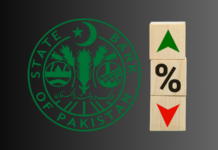BRUSSELS: The European Union is seeking new ways to widen the use of the euro and counter the dollar’s global dominance, top EU officials said on Thursday, as the bloc tries to salvage Iran’s nuclear deal by helping companies bypass US sanctions.
Fears they will be hit with sanctions have pushed European corporations to suspend their dealings with Iran after Washington pulled out of the nuclear accord last year. The EU has tried to defend the pact signed with world powers in 2015 by offering firms alternative ways to trade with oil-rich Iran.
Because the dollar is the world’s dominant currency, European officials and businessmen are aware that financial threats by the United States cannot be overlooked, even when they rest on controversial legal grounds.
“You simply don’t want to take the risk,” said a manager at a top European company.
Companies that trade with Iran risk being shut out from the US market and could lose access to credit. Banks, insurers and other financial operators that provide support to firms breaching sanctions also face fines. The effectiveness of US sanctions is increased by the dollar’s global dominance.
Beyond immediate but limited moves to challenge Washington’s boycott of the Iran deal, such as plans to set up a barter-based trade channel, INSTEX, EU officials are taking a long view and pondering how to help the euro challenge the dollar’s position.
“A stronger international role for the euro is a key priority,” France’s Finance Minister Bruno Le Maire told a conference in Brussels, saying US policy toward Iran had triggered renewed efforts in that direction.
“I don’t want our companies to suffer from American decisions that we do not share,” Le Maire told the conference of European financial experts.
The dollar is dominant in most sectors of the global monetary system, accounting for about a 60pc of foreign reserves, sovereign debt issuance and international loans to corporations. The euro takes roughly a 20pc share of those markets.
Reforming the euro zone’s governance, with joint debt issuance and stronger common guarantees to rescue ailing banks and their savers, is considered the crucial route to strengthen the euro. But divisions between the 19-country bloc’s governments have for years prevented progress.

























